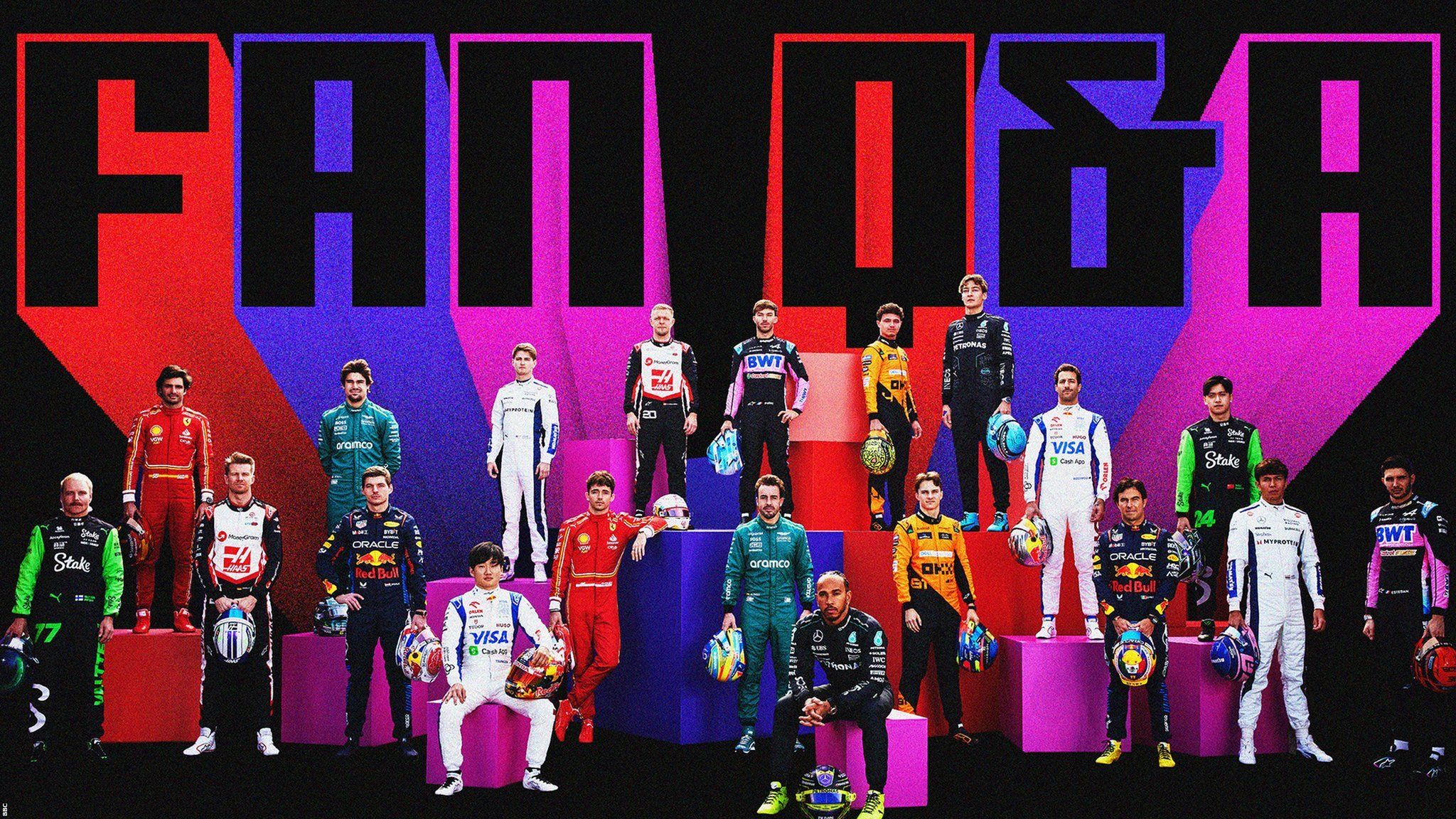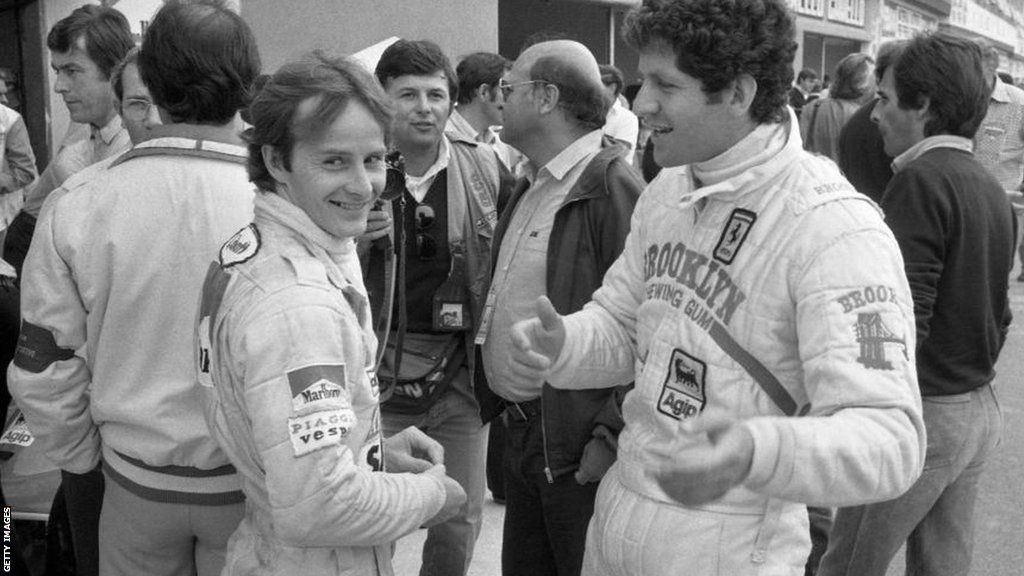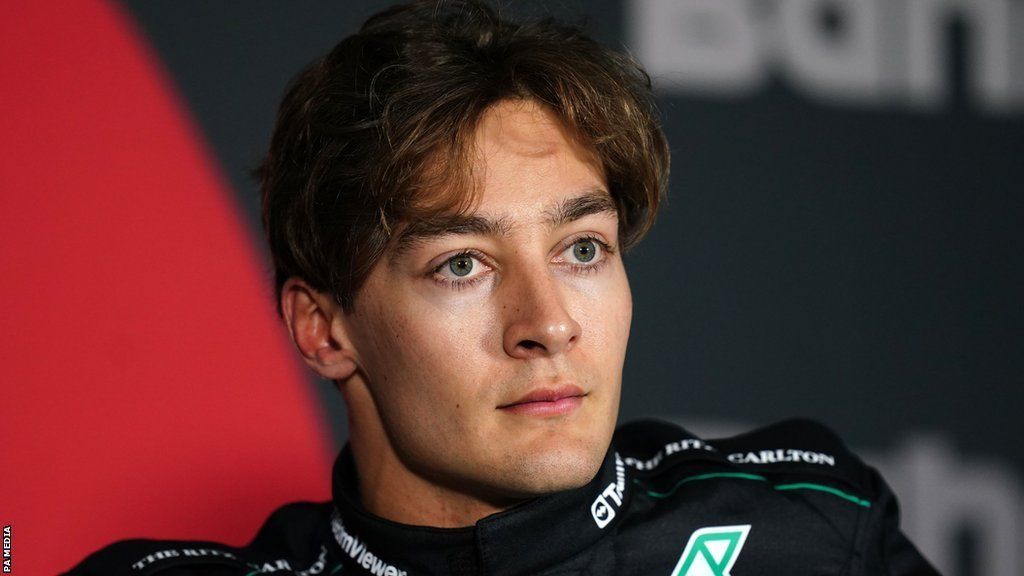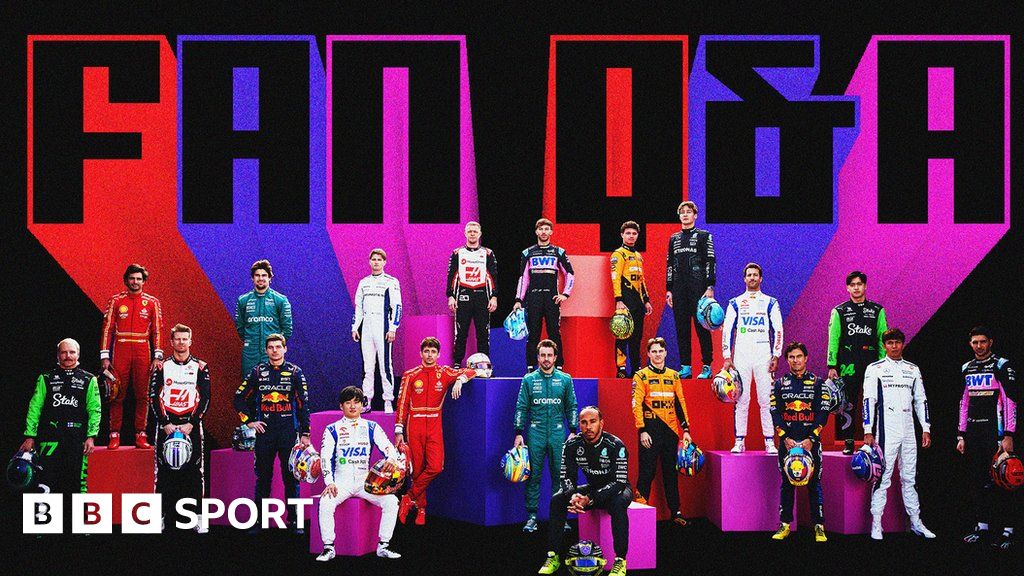
Formula 1 is back this weekend with the Australian Grand Prix – and race day returns to a Sunday.
Max Verstappen has made a strong start to the season, winning both the Bahrain and Saudi Arabia Grands Prix.
As teams prepare to travel to Albert Park in Melbourne, BBC Sport’s F1 correspondent Andrew Benson answers your questions.
Is there a driver from before your career started who you would love to have interviewed?
Andrew: Thanks for the questions as ever.
Two, actually.
The end of Ayrton Senna’s career coincided with the very beginnings of mine – I was just beginning to attend the odd grand prix as a journalist in 1993.
I had a brief close encounter with the legendary Brazilian at Imola that year, which I’ve touched on in here. In that piece, you can also explore the reasons why it would have been so fascinating to do a long-form interview with him.
The other is Gilles Villeneuve – who was the driver who first sparked my interest in Formula 1.

His combination of speed, bravery, and straightforwardness was and remains compelling, not just for me, but for many around the world.
I feel there was a fair bit more to him than is often allowed for, and I would have enjoyed trying to get into that.
Of course, there are many more great names through history who would have been fascinating to talk to, but those are the two who stand out on a personal level.
How close do you think Mercedes, McLaren, Ferrari etc will get to Red Bull as we get towards the later stages, on the current regulations?
Andrew: Any answer to this can only be a guess, and there are two possible ones. The prevailing theory is that as long as regulations are kept in place, the more the field closes up.
The thinking behind that is a team with an advantage finds it harder to unearth further gains as they are pushing up against the ceiling of what’s possible, while the others catch up.
But… I’m not that convinced that will happen here. This is year three of a set of rules that were designed to make the racing more competitive and close the field up.
They have done some of that – but Red Bull started with an advantage and it has, if anything, grown over time rather than diminished. I fear no-one will catch up before the new rules in 2026.
What was behind the dramatic change in Honda engines from way off the pace to winners with Red Bull?
Andrew: This is a really interesting story. Honda announced in late 2020 that it would pull out of F1 at the end of 2021.
Before that decision was made, Honda’s F1 department had been planning to introduce an all-new power unit for 2022.
But when the board decided to quit, the engineers asked for permission to bring it forward to 2021 which was, at the time, planned to be the Japanese company’s final year in F1.
The engineers pulled out all the stops and basically revised the entire engine, making it smaller, lower, lighter, more powerful and more efficient.
It was a quite remarkable effort, detailed on Honda’s own website and BBC Sport also interviewed Honda F1 technical director Toyoharu Tanabe about it.
Over time, Honda had a change of heart on quitting. First, they allowed Red Bull to use their engines, taking over their intellectual property, but then in 2022 they negotiated with Red Bull to stay in F1 until the end of the current rule set.
Meanwhile, without a power-unit supplier for 2026, Red Bull set up its own engines division, only for Honda to decide in 2023 to stay in F1 from 2026 under the new rules and do a deal to move to Aston Martin, much to Red Bull’s dismay.
What do you think will be a realistic target for George Russell and Mercedes this season?

Andrew: Mercedes’ target will be to end the season as best of the rest – they already pretty much admit that Red Bull are uncatchable this year, certainly in terms of the championship.
For Russell, that realistically means the best he can hope for is to finish third, behind Max Verstappen and Sergio Perez. To do that, of course, he has to beat Lewis Hamilton – no easy task, despite the seven-time champion’s slow start to the season – and perhaps even more of a challenge is Ferrari’s Charles Leclerc.
Mercedes have some work to do after a chastening Saudi Arabian Grand Prix weekend, when they admitted that the car was not producing the downforce they thought it should be, and they did not know why.
They have been burning the midnight oil in the last week to try to figure out what they have not understood, so it will be interesting to see how they get on in Melbourne this weekend.
If the competition for race wins fails to materialise for the rest of the field, what else do we have to look forward to this season?
Andrew: This is a tough question, and I know lots of people are feeling it. The fact of the matter is that the Red Bull is the best car in the field, and Max Verstappen is an all-time great driver who is operating at an incredibly high level and has been for some time, and it is very difficult to see him being beaten at the moment.
On one level, one simply has to admire what Verstappen and Red Bull are doing. Even if there are valid questions that arise from them breaching the budget cap in 2021, when the 2022 car was being designed, and how much of an advantage that gave them.
Sometimes this happens in sport – one person or team is just on a separate level and that’s all there is to it. Think Usain Bolt, or the West Indies and Australian cricket teams in their periods of domination in the 1970s-80s, and then 1990s-2000s.
Beyond that, I guess it’s about watching the battles behind and hoping they produce some good racing.
What are the reasons behind Mercedes not being able to compete with the top teams?
Andrew: Mercedes left the opening race in Bahrain optimistic that they had a car that finally provided a platform on which they could build and develop under these new rules.
Saudi Arabia suggested something else. Basically, a weakness of the car was exposed – it was dreadfully slow in the high-speed corners. And Mercedes did not understand why.
In short, the simulation data said it should be producing a certain amount of downforce, and it was not producing anything like it.
Team principal Toto Wolff admitted: “There is something which we don’t understand.”
The bottom line is that something is happening with the Mercedes floor which the team cannot get their heads around.
They still simply don’t understand how to make a car work effectively with these new rules.
As Wolff put it in Jeddah: “The thing is, it’s been two-and-a-half years that we are chasing this fundamental. It is not by lack of trying. We pushed so hard and we are going to give it a massive go now in the next week with more data to understand and come back to Melbourne stronger.”
With the recent rejection of Andretti’s entry and top drivers staying in F1 for 10-plus years, what can F1 do to help with promoting new talent?
Andrew: I think more is made of this issue than needs to be. Yes, drivers such as Fernando Alonso and Lewis Hamilton are having careers longer than has been typical in the past. But why shouldn’t they?
They are two of the greatest ever, and still performing at an incredibly high level. Why should a less-talented younger driver take their place? F1 is a meritocracy.
No-one has a right to an F1 career – you have to deserve it, and keep proving that you do.
The really talented younger drivers tend to make it to F1. And the current grid proves it – Max Verstappen, Charles Leclerc, George Russell, Lando Norris, Oscar Piastri, Alex Albon; that’s a remarkable collection of talent to have come up in the past few years.
And look at Oliver Bearman’s debut in Jeddah. He’s pretty much booked a place on the grid next year, and it won’t be long before his new Formula 2 team-mate Andrea Kimi Antonelli joins him – perhaps even next year, too.
As someone who is new to F1 – what is the big problem if a single driver (Verstappen) dominates the sport for a period of time?
Andrew: Well, it’s not necessarily a “problem”. It is what it is, as we addressed a little earlier. But from the point of view of the people who run the sport, the concern is that audiences will drop, and therefore so will revenue.
Unusually, in the context of F1 history, nothing is being done about this right now. In the past, the FIA might have stepped in and come up with some rule change that they thought might hamper Red Bull – think of the decision to force teams not to change tyres in races in 2005, for example, which brought Ferrari’s domination to a shuddering halt.
The problem right now is that there is nothing obvious that can be done. Red Bull and Verstappen are just better than everyone, and it’s up to the others to up their games.

-
The health benefits of going to bed one hour earlier: Dr Michael Mosley investigates the positive effects of a bit more sleep
-
Welcome to the weird world of an NHS labour ward: Ben Whishaw stars in Adam Kay’s raw, ridiculous rollercoaster diary of a junior doctor’s life

